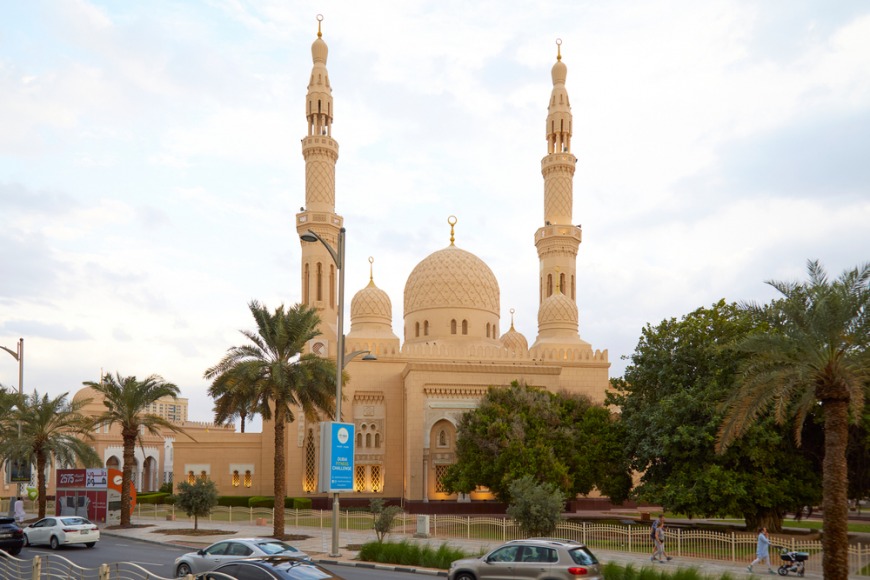Here's a look at what Ramadan traditions will remain in place in the UAE, and how others might change
18 March 2021
| Last updated on 5 April 2021
As the UAE is preparing for Ramadan 2021 — here’s what you must know so you can, too.
For expat and Emirati Muslims in the UAE, Ramadan 2021 might look to be a repeat of what we experienced last year under the Covid-19 pandemic — however, thanks to the national vaccination drive and strict safety measures in place, worshippers can still flourish during the Holy Month.
Of course, Ramadan will still be a bit different this Tuesday, 13 April to Wednesday, 12 May, but its overall theme of family, community, reflection, charity, and prayer, will remain.
We take a look at what to expect for Ramadan 2021 in the UAE...
How is Ramadan normally celebrated in the UAE?
Typically, Ramadan is celebrated over a 29 or 30-day period where Muslims must abstain from food and drink during the daylight hours. They can eat before sunrise and then break their fast later in the day.
In the UAE, all non-Muslim and Muslim residents are not allowed to eat in public during Ramadan, except in designated dining areas such as food courts, office lunchrooms, etc. that must be hidden from public view.
Fasting is seen as a practice that falls under the five pillars of Islam.

For Muslims partaking, there are two main meals that begin and end the daily fasting period: "Suhoor" which is eaten before dawn, and "iftar" which is eaten to break the fast.
Before the pandemic, these two meals were usually enjoyed among family and friends.
During the Holy Month, Muslims also try to practice "zakat" (charity). You might have seen a lot of donation drives and charity-related events around the UAE during Ramadan in the previous years. Mosques, restaurants, and Good Samaritan residents in the UAE would also distribute free iftar meals on a first-come, first-serve basis as well.
How will Ramadan look like in the UAE this year?
For 2021, Ramadan is expected to start on Tuesday, 13 April and end on Wednesday, 12 May. The actual timeline depends on the lunar cycle, with the official date to be announced in April and may run for 29 or 30 days.
To prevent the spread of Covid-19, the UAE has not allowed large gatherings, thus iftar tents or Ramadan banquets are not permitted this year.

Mosques during Ramadan
Mosques will be open during Ramadan in the UAE this year, with strict rules in place including sanitisation, physical distancing, mandatory face masks, and max intake of worshippers.
Those visiting a mosque must bring their own prayer mats and own copies of the Quran as well, ideally digital instead of a physical copy.
Taraweeh prayers can be performed in mosques. Women's prayer halls will remain closed.
What about Covid-19 vaccines?
The UAE Fatwa Council said that taking a Covid-19 vaccine "does not invalidate fasting". According to the council, inoculation is permitted in Islam.
Supermarkets, malls and restaurants during Ramadan
You can expect most supermarkets, restaurants, cafes, and shopping malls in the UAE to be open during Ramadan, for dine-in, takeaway, and deliveries.
Residents will be able to purchase and shop at supermarkets and malls as per usual.
Eating and meal distributions
According to UAE authorities, iftar and suhoor must only be shared with other people inside their homes and immediate family, and should not hold gatherings with friends or extended relatives who live separately.

Food is prohibited to be shared between households during Ramadan 2021.
Free iftar meal distributions will not happen this year. Restaurants are not allowed to distribute food in or outside the area for zakat. However, this rule changes depending on which emirate you're in.
In Ajman, iftar meals will be distributed by charities under the Ajman Charitable Activities and Endowments Co-ordination Council. In Sharjah, meal distribution will only be done by registered charities.
Inspections will be carried out to ensure the public's compliance with the Covid-19 Ramadan guidelines, to safeguard our community from the virus.




.png?itok=HBSyMDok)









































































.png)


























.png?itok=0fOAXkOm)

























.png?itok=EH_x0Pha)
